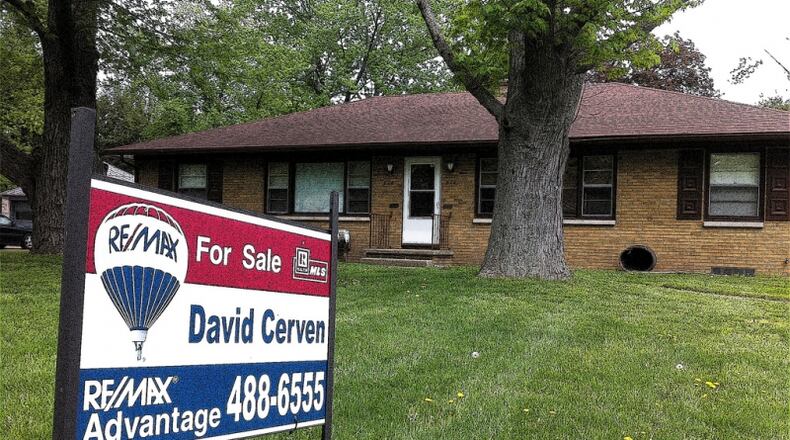Top 20 for share of renters qualified to buy:
Youngstown-Warren-Boardman, OH-PA …. 55.6%
Toledo, OH ……………………………………………..46.3%
Little Rock-North Little Rock-Conway, AR ..…45.8%
Akron, OH ……………………………………………….45.0%
Wichita, KS ……………………………………………..44.9%
Tulsa, OK …………………………………………………43.7%
Dayton, OH ………………………………………………43.5%
Omaha-Council Bluffs, NE-IA …………………….43.0%
Oklahoma City, OK …………………………………….42.8%
Syracuse, NY ……………………………………………..42.2%
Des Moines-West Des Moines, IA ………………..42.1%
Buffalo-Cheektowaga-Niagara Falls, NY ……….41.3%
Palm Bay-Melbourne-Titusville, FL ………………41.1%
Lakeland-Winter Haven, FL …………………………41.1%
Cleveland-Elyria, OH …………………………………..41.0%
Cincinnati, OH-KY-IN …………………………………40.6%
St. Louis, MO-IL …………………………………………40.6%
Columbia, SC ……………………………………………..40.6%
Atlanta-Sandy Springs-Roswell ………….40.0%
Indianapolis-Carmel-Anderson, IN ………………39.9%
Source: National Association of Realtors
As the home ownership rate continues to decline to near-historic lows, the National Association of Realtors wants you to know: Lots of you renters can afford to buy a house. Really, you could.
A solid 40 percent of Atlanta’s renters can afford to buy a house, said the NAR in a newly-released study.
That gives Atlanta as the metro with the 19th highest share of purchase-ready renters among the nation's top 100 metro areas. However, among the more active markets with growing economies, Atlanta ranks seventh, the NAR said.
To arrive at that estimate, the association took a look at job growth and household income, as well as the income level needed to qualify for a mortgage.
Now, there’s a continuing own-rent debate that is only partly about the financial ability to buy.
Renting gives you much more flexibility, in case you need to split town for a new job, say. It gives you more in-town options, should you prefer to be in a citified environment. (Hello, millennials!!) It also means off-loading the hassle and expense of day-to-day repairs to someone else.
Buying provides a tax break and the hope of amassing some wealth as the value of the home rises. It also offers the seductive potential of taking money out of the house by refinancing.
Ahem, the pro-rent faction might add, a lot of the bonus in owning depends on a rising market. (Can you say 2008?) Some renters are simply owners who got burned by the disastrous collapse of the housing market.
Still, a lot of renters do say they would someday like to own and the Realtors – who admittedly have something of a stake in that choice – say a rising share of renters could go ahead and buy.
The highest share is in the Youngstown, Ohio metro area, a city whose economy has been shrinking. To qualify for a mortgage in metro Atlanta, the association says a household needs income of $45,078 – more than twice what it takes in Youngstown.
But let's compare economies: Youngstown's job growth has been negative – shrinking by 0.5 percent – and its median household income is $39,325. By comparison, metro Atlanta's job base has been expanding at better than a 3 percent pace and its median household income is just north of $70,000, the NAR said.
Many of the markets with the most renters qualified to buy are in the South and Midwest, according to the NAR: That is because median sales prices in those regions are lower than the national average, while job growth in those markets has been more rapid.
The home ownership rate – once nearly 70 percent – has fallen since the housing crash and recession to less than 63 percent. At the previous rate, millions more people would be owners.
That sharp decline has occurred despite low interest rates, steady job growth and a consistent decline in unemployment.
Despite that, in a number of markets, many people – especially younger adults – have been priced out of the market by rising home prices at a time when their incomes are stagnant.
Still, some markets – like Atlanta – have a better price-income balance, said Lawrence Yun, the chief economist of the association.
“Even in a time of expanding home sales, steady job growth and historically low mortgage rates, the homeownership rate recently tumbled to its lowest level in over five decades as many renters struggle to juggle escalating rents without commensurate income gains,” he said. “However, this new study reveals that there are several affordable, middle-tier markets with solid job gains and a large segment of renters who earn enough to buy.”
About the Author
Keep Reading
The Latest
Featured


